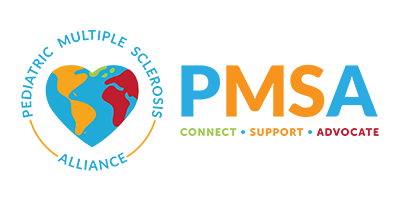Clinical Trials
Clinical Trials Reviews
Sleep, Physical Activity and Multiple Sclerosis Symptoms in Pediatric Multiple Sclerosis
Read the Full Study Here
Most youth with MS experience symptoms such as depression and fatigue. In addition, cognitive issues, especially with attention and memory occur frequently. However, little is known about interventions that might work to improve these symptoms. In other work, the investigators have shown that higher levels of physical activity are associated with lower levels of depression and fatigue. Importantly, sleep problems are frequently encountered in youth with MS, and were seen in 60% of surveyed youth with MS in the investigators preliminary work. Modifiable lifestyle factors such as sleep and physical activity (PA) may play a key role in ameliorating common symptoms in pediatric MS. However, sleep has not been objectively described in pediatric MS, and the relationship between PA and sleep is poorly understood. This study aims to address these gaps.
A Multicenter Observational Study to Evaluate Pediatric Multiple Sclerosis in Brazil
Read the Full Study Here
This is an observational non-interventional multicenter study in pediatric MS patients in which participating subjects will be characterized by their clinical, MRI and immunological features. In this observational study, we will select 8 MS centers in Brazil to recruit at least 100 pediatric patients currently followed on each center with idiopathic inflammatory CNS disorders over a 2-year study period.
A Study of NeuroVax™, a Novel Therapeutic TCR Peptide Vaccine for Pediatric Multiple Sclerosis
Read the Full Study Here
A Multi-Center Phase I Study of NeuroVax™, a Novel Therapeutic TCR Peptide Vaccine for Pediatric Multiple Sclerosis to demonstrate safety & efficacy 12 subjects with pediatric MS
A Study to Evaluate Efficacy, Safety, and Tolerability of Alemtuzumab in Pediatric Patients With RRMS With Disease Activity on Prior DMT
Read the Full Study Here
Primary Objective:
To evaluate the efficacy, safety, and tolerability of alemtuzumab (IV) in pediatric patients from 10 to <18 years of age with Relapsing Remitting Multiple Sclerosis (RRMS) who have disease activity on prior Disease Modifying Therapy (DMT).
Phase 3 Efficacy and Safety Study of BG00012 in Pediatric Subjects With Relapsing-remitting Multiple Sclerosis
Read the Full Study Here
The main objectives of Part 1 are as follows: To evaluate the safety, tolerability, and efficacy of BG00012 in pediatric subjects with RRMS, as compared with a disease-modifying treatment and to assess health outcomes and evolution of disability.
ATOMIC (Active Teens With MultIple sClerosis) Teens: A Feasibility Study
Read the Full Study Here
Taking part in recommended levels of physical activity in youth with MS may have an important and positive impact on disease symptoms, long-term disability and health outcomes. Unfortunately, youth with MS are highly inactive. In order to address this issue, the investigators have developed an MS-specific mobile application for teens called Active Teens with Multiple Sclerosis (ATOMIC). In this research the investigators will evaluate the feasibility of using the ATOMIC program in youth with MS. The results of this pilot study will provide the data necessary to ensure the ATOMIC program aligns with the needs of youth with MS.
Cognitive Dysfunction in MS: Using Altered Brain Oscillation to Link Molecular Mechanisms With Clinical Outcomes
Read the Full Study Here
Up to 65% of patients with multiple sclerosis (MS) experience cognitive dysfunction. Diminution of mental capacity has a pervasive and profound impact on their quality of life. Subtle changes in white matter predict cognitive changes in these patients but how this disrupts brain function remains unclear. Development of effective therapeutics to restore normal cognition hinges on elucidating these functional changes. The investigators seek to uncover the patho-physiological basis for cognitive decline in MS. The investigators hypothesize that cognitive decline originates from disrupted gamma oscillations and that gamma oscillations are disrupted by molecular changes triggered by demyelination.
DTI in Children With Multiple Sclerosis
Read the Full Study Here
This is a prospective, non-randomised, non-blinded, single center study of children and adolescents with multiple sclerosis and clinically isolated syndrome to detect differences or early changes in diffusion-weighted imaging (DTI) by magnetic resonance imaging (MRI).
